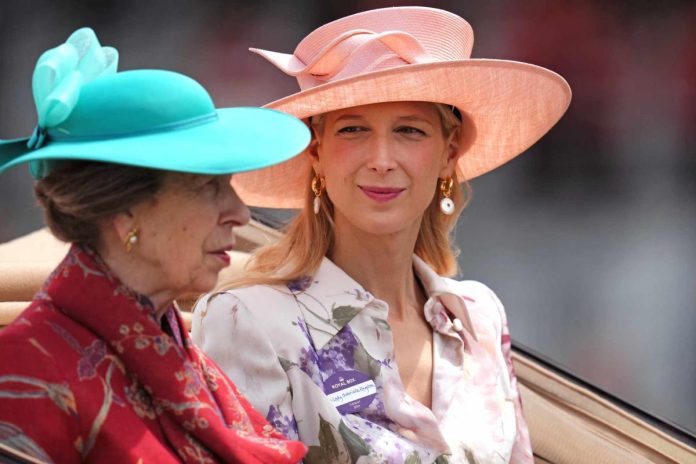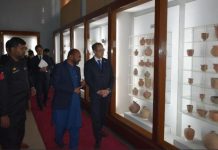Tokyo, June 19 (AFP/APP):As Emperor Naruhito and Empress Masako make the first Japanese state visit to Britain since 1998, here are some key things to know about the imperial family:
– Sun goddess –
Legend has it that Japan’s royals, whose myth-filled history spans 2,600 years, are descended from the Shinto sun goddess Amaterasu.
Their divine status was renounced after World War II following Japan’s militaristic sweep across Asia in the name of Emperor Hirohito.
The family holds no political power under the post-war constitution, but the institution remains hugely symbolic.
After Hirohito died in 1989, his son Akihito dramatically modernised the monarchy by marrying a commoner and expressing regret over Japan’s brutal wartime past.
In 2019, Akihito became the first emperor in two centuries to abdicate, and his son Naruhito, now 64, ascended the Chrysanthemum Throne in a ritual-bound ceremony.
– Male bloodline –
Male-only succession rules mean the imperial family is facing extinction, with only one current heir: Naruhito’s 17-year-old nephew Prince Hisahito.
His daughter Princess Aiko, 22, is barred from the throne under the Imperial Household Law, in place since 1947.
Royal women must leave the family when they wed a commoner — as in 2021 when former princess Mako Komuro, Naruhito’s niece, married her university sweetheart.
Lawmakers in May began discussing possible relaxations to the strict succession rules, and a recent Kyodo News poll found 90 percent public support for female succession.
But resistance among conservative MPs, who revere the royals as the perfect example of a patriarchal Japanese family, makes that change unlikely any time soon.
– Instagram debut –
The royals face huge pressure to conform to tradition and meet exacting standards of behaviour, with each move intensely scrutinised.
They rarely share their personal lives — even on an official Instagram account which went live in April, in an attempt to spark interest among younger generations.
Criticism of the emperor is virtually non-existent in Japan, a phenomenon known as the Chrysanthemum taboo.
On some occasions in the past, right-wingers physically attacked people they saw as imperial opponents.
But more recently, tabloids and some entertainment shows have dug deeper into the lives of the wider family.
– Pressure on women –
As in Britain, women who marry into the royal family do not have an easy ride.
Empress Masako, a former high-flying diplomat, has suffered from a stress-related illness for years, with some observers blaming the pressure of producing a male heir.
Akihito’s wife Michiko, the first commoner to join the family, faced tabloid gossip and criticism from hardliners, especially in the early years of the marriage.
She once lost her voice for months, and has also suffered stomach problems linked to stress.
And when Mako married out of the family, she developed complex post-traumatic stress disorder after she and her husband Kei Komuro were plagued by gossip over allegations that his family had run into financial difficulties.
– Soft power –
Like his father, Naruhito has tried to bring the royal household closer to the people, travelling with Masako to meet the survivors of natural disasters.
Their official UK engagements from June 25 to 27 follow the couple’s first state visit last year to Indonesia. They also attended Queen Elizabeth II’s funeral in 2022.
Other royals have also gone abroad: in November, Mako’s sister Princess Kako visited Peru, marking the 150th anniversary of diplomatic ties between the countries.
The family is known for its research endeavours, especially in the sciences, and the emperor spent two years at Oxford University in the 1980s.
A 2015 book by Naruhito’s second cousin Princess Akiko, describing her studies at Oxford and her diplomatic passport causing suspicion at an airport, was a recent hit.

















